Chris Marriott
Modeling the Evolution of Gene-Culture Divergence
Apr 25, 2016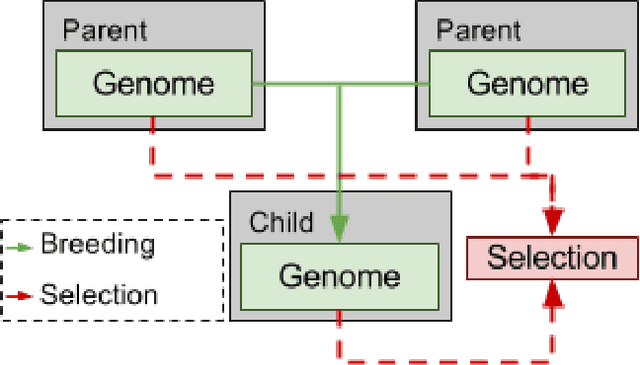
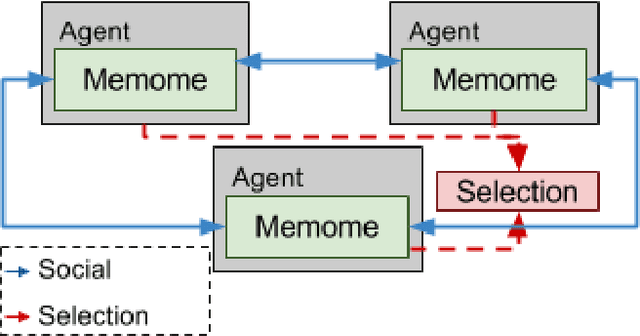
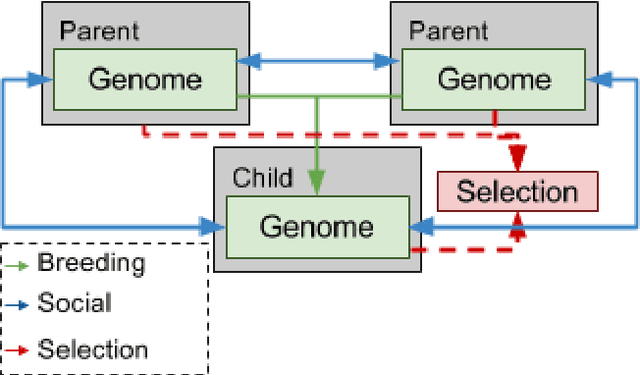
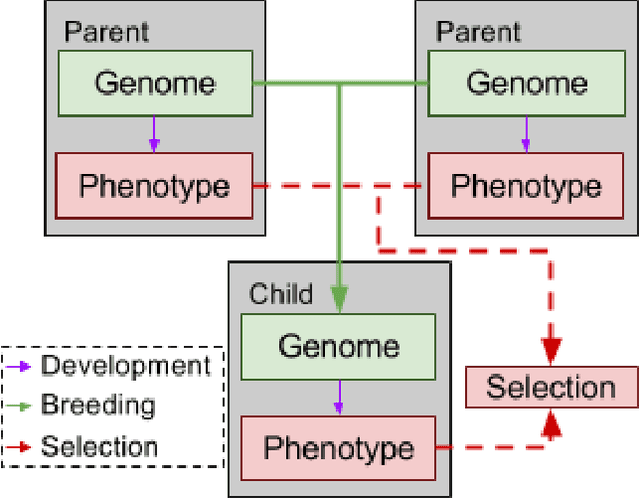
Abstract:We present a model for evolving agents using both genetic and cultural inheritance mechanisms. Within each agent our model maintains two distinct information stores we call the genome and the memome. Processes of adaptation are modeled as evolutionary processes at each level of adaptation (phylogenetic, ontogenetic, sociogenetic). We review relevant competing models and we show how our model improves on previous attempts to model genetic and cultural evolutionary processes. In particular we argue our model can achieve divergent gene-culture co-evolution.
Emergence-focused design in complex system simulation
May 18, 2015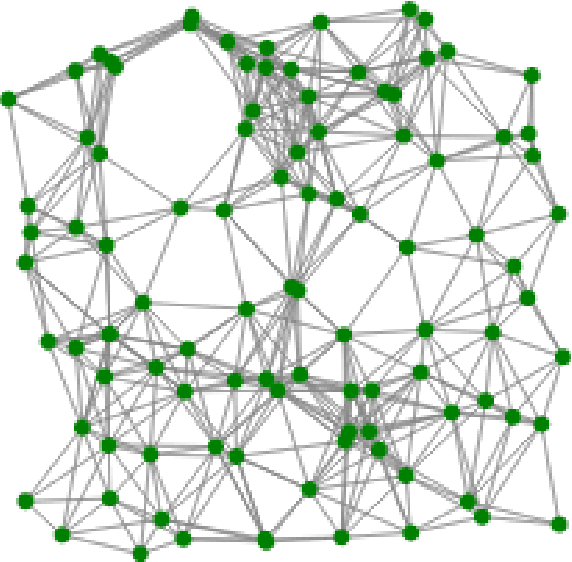


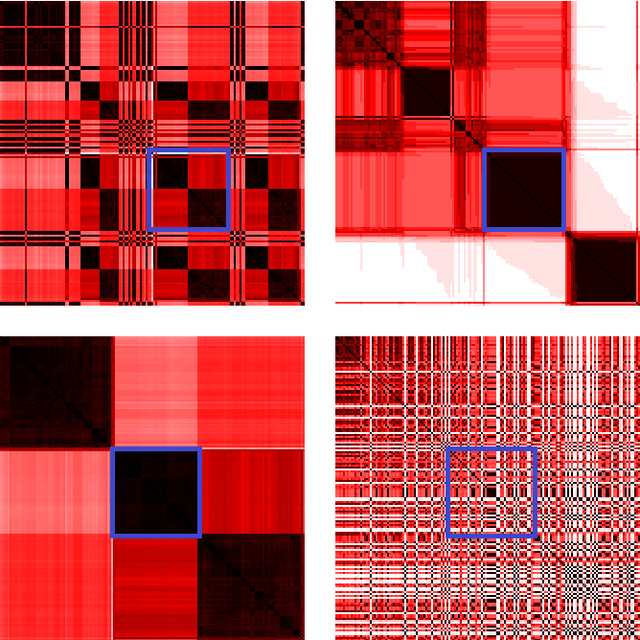
Abstract:Emergence is a phenomenon taken for granted in science but also still not well understood. We have developed a model of artificial genetic evolution intended to allow for emergence on genetic, population and social levels. We present the details of the current state of our environment, agent, and reproductive models. In developing our models we have relied on a principle of using non-linear systems to model as many systems as possible including mutation and recombination, gene-environment interaction, agent metabolism, agent survival, resource gathering and sexual reproduction. In this paper we review the genetic dynamics that have emerged in our system including genotype-phenotype divergence, genetic drift, pseudogenes, and gene duplication. We conclude that emergence-focused design in complex system simulation is necessary to reproduce the multilevel emergence seen in the natural world.
The Effect of Social Learning on Individual Learning and Evolution
Jun 10, 2014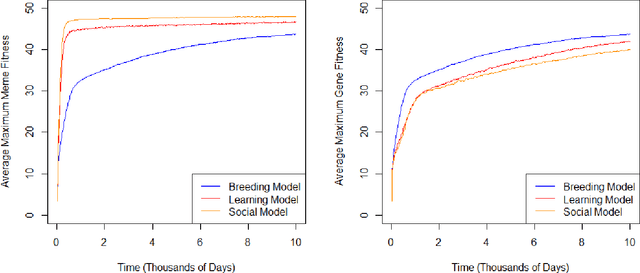
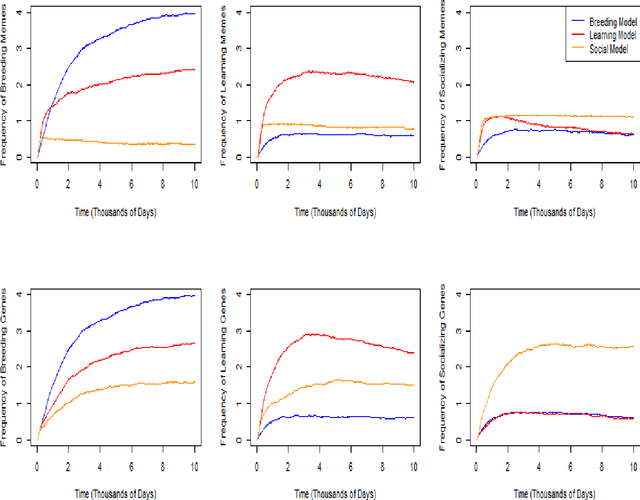
Abstract:We consider the effects of social learning on the individual learning and genetic evolution of a colony of artificial agents capable of genetic, individual and social modes of adaptation. We confirm that there is strong selection pressure to acquire traits of individual learning and social learning when these are adaptive traits. We show that selection pressure for learning of either kind can supress selection pressure for reproduction or greater fitness. We show that social learning differs from individual learning in that it can support a second evolutionary system that is decoupled from the biological evolutionary system. This decoupling leads to an emergent interaction where immature agents are more likely to engage in learning activities than mature agents.
Polyethism in a colony of artificial ants
Apr 15, 2011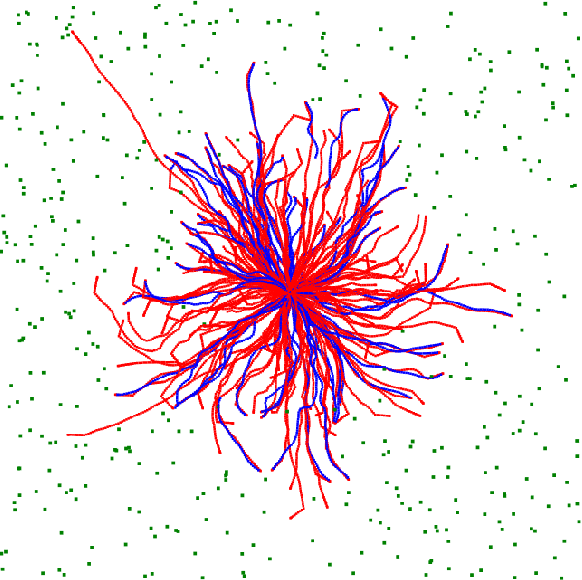
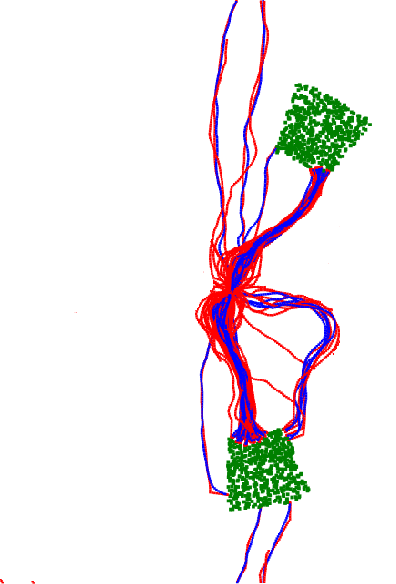
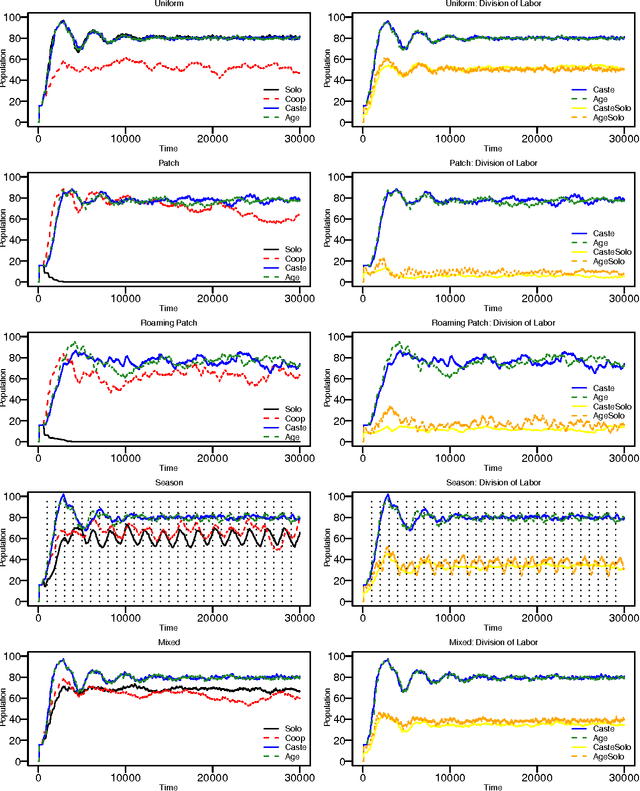

Abstract:We explore self-organizing strategies for role assignment in a foraging task carried out by a colony of artificial agents. Our strategies are inspired by various mechanisms of division of labor (polyethism) observed in eusocial insects like ants, termites, or bees. Specifically we instantiate models of caste polyethism and age or temporal polyethism to evaluated the benefits to foraging in a dynamic environment. Our experiment is directly related to the exploration/exploitation trade of in machine learning.
* 8 pages, 4 figures, submitted to ECAL 11
 Add to Chrome
Add to Chrome Add to Firefox
Add to Firefox Add to Edge
Add to Edge